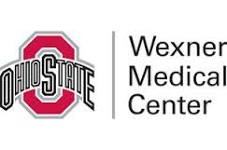Intraoperative Echocardiographic Evaluation of Pulmonary Vein Velocities and Outcomes in Lung Transplantation
| Status: | Recruiting |
|---|---|
| Healthy: | No |
| Age Range: | 18 - Any |
| Updated: | 9/30/2017 |
| Start Date: | March 17, 2017 |
| End Date: | December 2018 |
| Contact: | Amar Bhatt, MD |
| Email: | amar.bhatt@osumc.edu |
| Phone: | (614) 293-8487 |
This study will evaluate if an association exists between levels of blood flow through the
pulmonary veins and the incidence of graft dysfunction post operatively.
pulmonary veins and the incidence of graft dysfunction post operatively.
Lung transplantation surgery can be fraught with a multitude of early as well as delayed
complications leading to increased morbidity and mortality. During lung transplant surgery,
trans-esophageal echocardiography (TEE) is routinely used to identify cardiac anatomy and
measure blood flow through the pulmonary veins. This blood flow is assessed both before and
after the lung has been transplanted. Blood flow through these small caliber vessels can be
impacted by many variables with a resulting reduction in blood circulating to the lung,
although currently there is no agreement on an acceptable level of flow. This study will look
at retrospective data from lung transplant surgeries undertaken at this institution since Jan
1st 2014 until November 18th 2016 with the goal of determining if an association exists
between levels of blood flow through the pulmonary veins and the incidence of graft
dysfunction post operatively.
complications leading to increased morbidity and mortality. During lung transplant surgery,
trans-esophageal echocardiography (TEE) is routinely used to identify cardiac anatomy and
measure blood flow through the pulmonary veins. This blood flow is assessed both before and
after the lung has been transplanted. Blood flow through these small caliber vessels can be
impacted by many variables with a resulting reduction in blood circulating to the lung,
although currently there is no agreement on an acceptable level of flow. This study will look
at retrospective data from lung transplant surgeries undertaken at this institution since Jan
1st 2014 until November 18th 2016 with the goal of determining if an association exists
between levels of blood flow through the pulmonary veins and the incidence of graft
dysfunction post operatively.
Inclusion Criteria:
1. All adult patients ≥ 18 years of age
2. Having undergone single or bilateral lung transplantation surgery at Ohio State
University Wexner Medical Center between January 1st 2014 and November 18th 2016
Exclusion Criteria:
1. Patients ≤ 18 years of age
We found this trial at
1
site
410 W 10th Ave
Columbus, Ohio 43210
Columbus, Ohio 43210
(614) 293-8652

Phone: 614-293-0775
The Ohio State University, Wexner Medical Center Located in Columbus, The Ohio State University Wexner...
Click here to add this to my saved trials